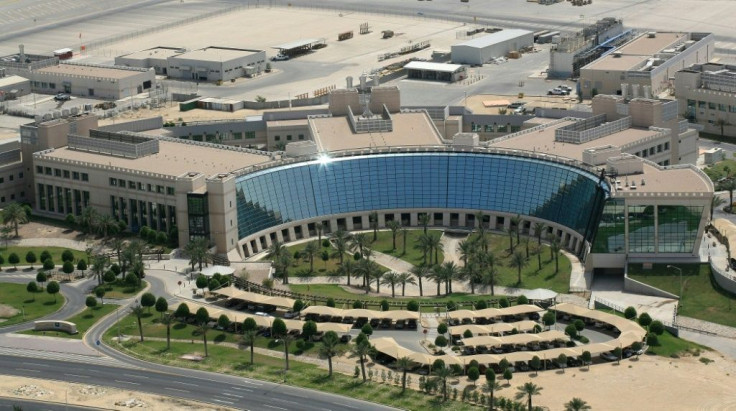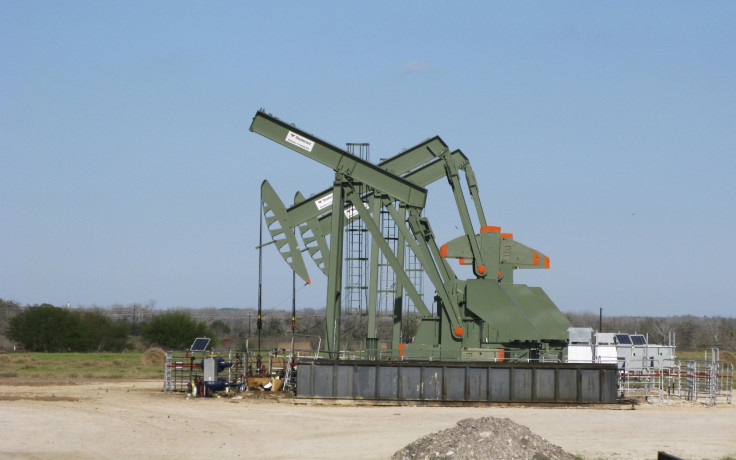Saudi Aramco’s Shale Gas 'Revolution' Can Pressure Oil, Redraw Gulf Politics

KEY POINTS
- Saudi Arabia's fracking success could make it a gas exporter snatching market share from Qatar
- Aramco plans to focus on supplying gas to neighboring Gulf allies
- New technology for using seawater has made shale gas extraction viable in Jafurah gas fields
Saudi Arabia’s massive program to tap shale gas can put oil under prolonged pressure and even alter geopolitics by helping neighbors cut energy ties with Qatar, media reports suggest. Saudi Aramco, the state oil company recently went public offloading 1.5% of its shares with the world’s largest initial public offer at $25.6 billion.
Saudi Aramco is launching the biggest shale gas development outside of the United States to boost domestic gas supply and end the burning of oil at its power generation plants, Chief Executive Amin Nasser told Reuters on Monday.
Aramco’s foray into shale gas development after failing to put U.S. shale developments out of business for six long years by oil price manipulations should bring international oil under pressure for a long time, a report on Fox Business said.
Saudi Arabia has adopted the techniques developed in U.S. fields for developing its own huge $110 billion Jafurah shale gas field project. Aramco received the go-ahead for the project Saturday.

According to Reuters, Saudi Arabia could become the world's third-largest gas producer by 2030, after the United States and Russia. Aramco has acquired the technique for fracking using seawater, according to Nasser. This removes the obstacle of finding huge quantities of water needed for fracking. “A new shale revolution is taking place (in Saudi Arabia), it's commercial and we are using seawater” in the fracking process, Nasser said in the interview. “A lot of people said it doesn’t work outside the U.S ... because fracking uses a lot of water and we are not rich with water. But we are using seawater.”
New technology developed
Aramco has drilled 150 wells since 2013 in the Jafurah shale gas field to prepare the development plan.
The Saudi state oil group has developed the technology to fracture the rock and release the oil and gas it holds, the technology known as fracking, in collaboration with international oil service companies such as Schlumberger, Halliburton, and Baker Hughes.
As the Jufarah field is near the Gulf coast, it has relatively easy access to seawater that will be lightly treated before using in fracking, Nasser said. It is also close to the world's largest oilfield, Ghawar, because of which it has access to energy infrastructure. Aramco has also identified local sand that can be used for fracking.

Successful expansion of fracking could help Saudi Arabia become a gas exporter. “The minute we satisfy the local requirement we will export,” Nasser said.
Saudi gas exports will have geopolitical importance as it will help the country’s Gulf region allies to avoid dependence for gas on Qatar, with whom Saudi Arabia, the United Arab Emirates, Bahrain and Egypt have severed political, trade and transport ties in 2017. They accuse their fellow member of the Gulf Cooperation Council of supporting terrorism though Doha denies it. Saudi Arabia apparently hardened its stand against Qatar after the ascent to power of Crown Prince Mohammed Bin Salman.
The UAE imports 2 billion cubic feet of natural gas per day from Qatar using the Dolphin pipeline.
Jafurah gas could begin flowing by 2024 and the output is expected to reach around 2.2 billion cubic feet per day of shale gas by 2036. The production of the ethane gas as a byproduct could touch 425 million cubic feet per day by then, reports say.
Brent was trading a shade above $56 a barrel in New York after sliding 4.1% Monday while oil futures slumped 4% to $51.27, reports said. International crude is already under pressure from a global slowdown and fears over the COVID-19 outbreak in China.
© Copyright IBTimes 2025. All rights reserved.





















